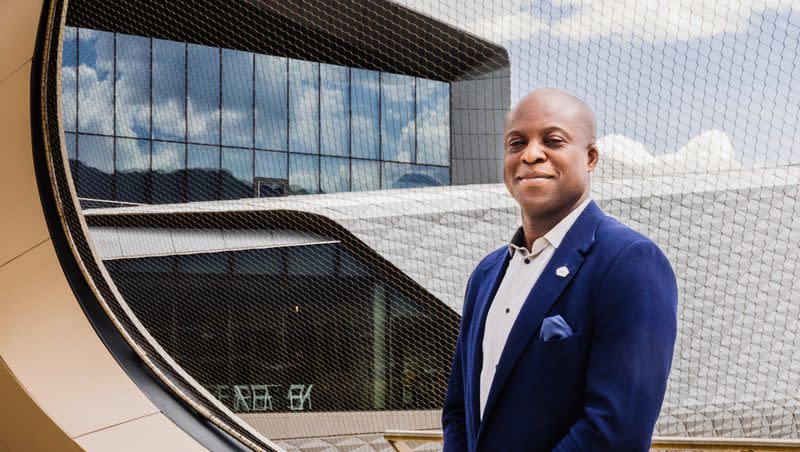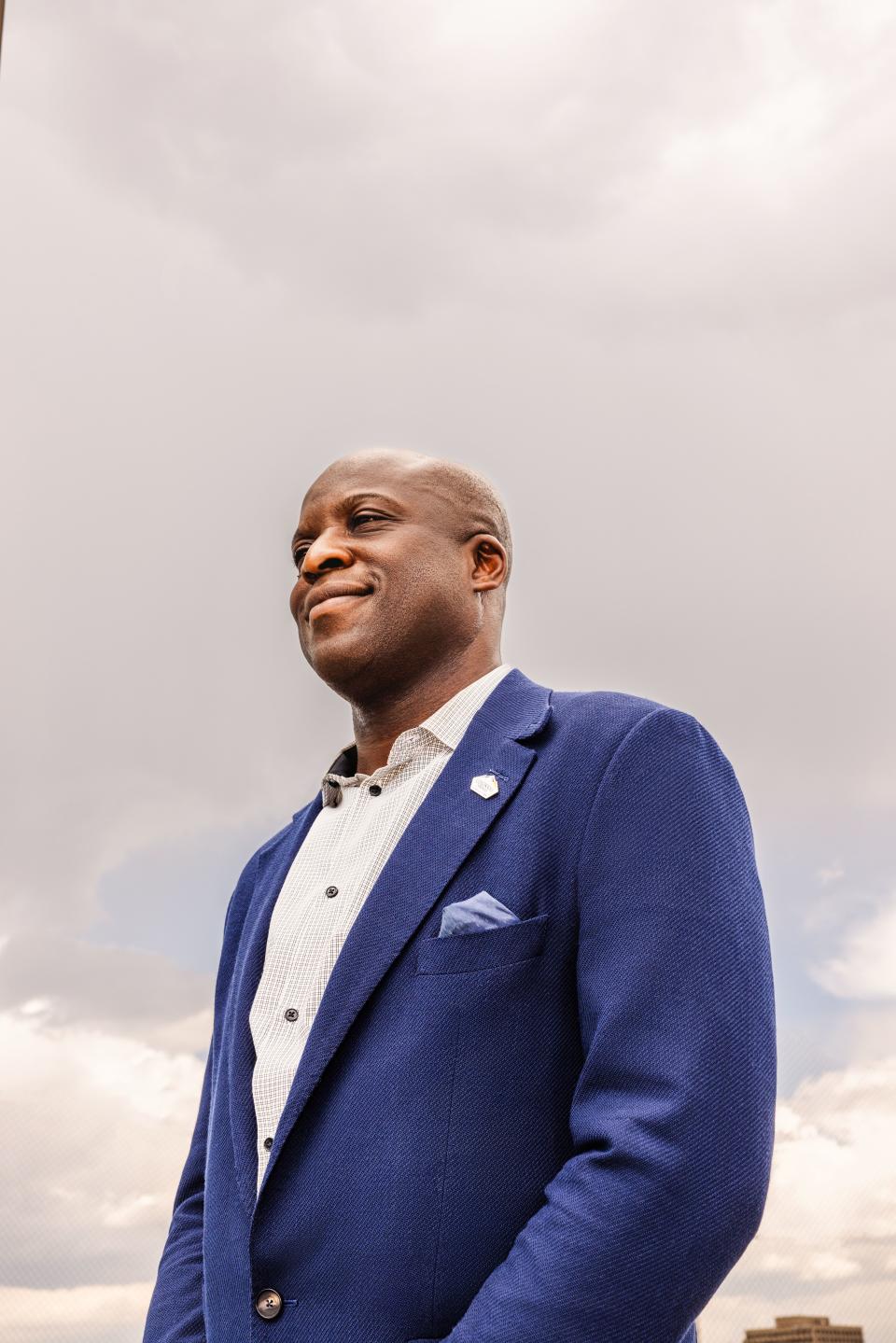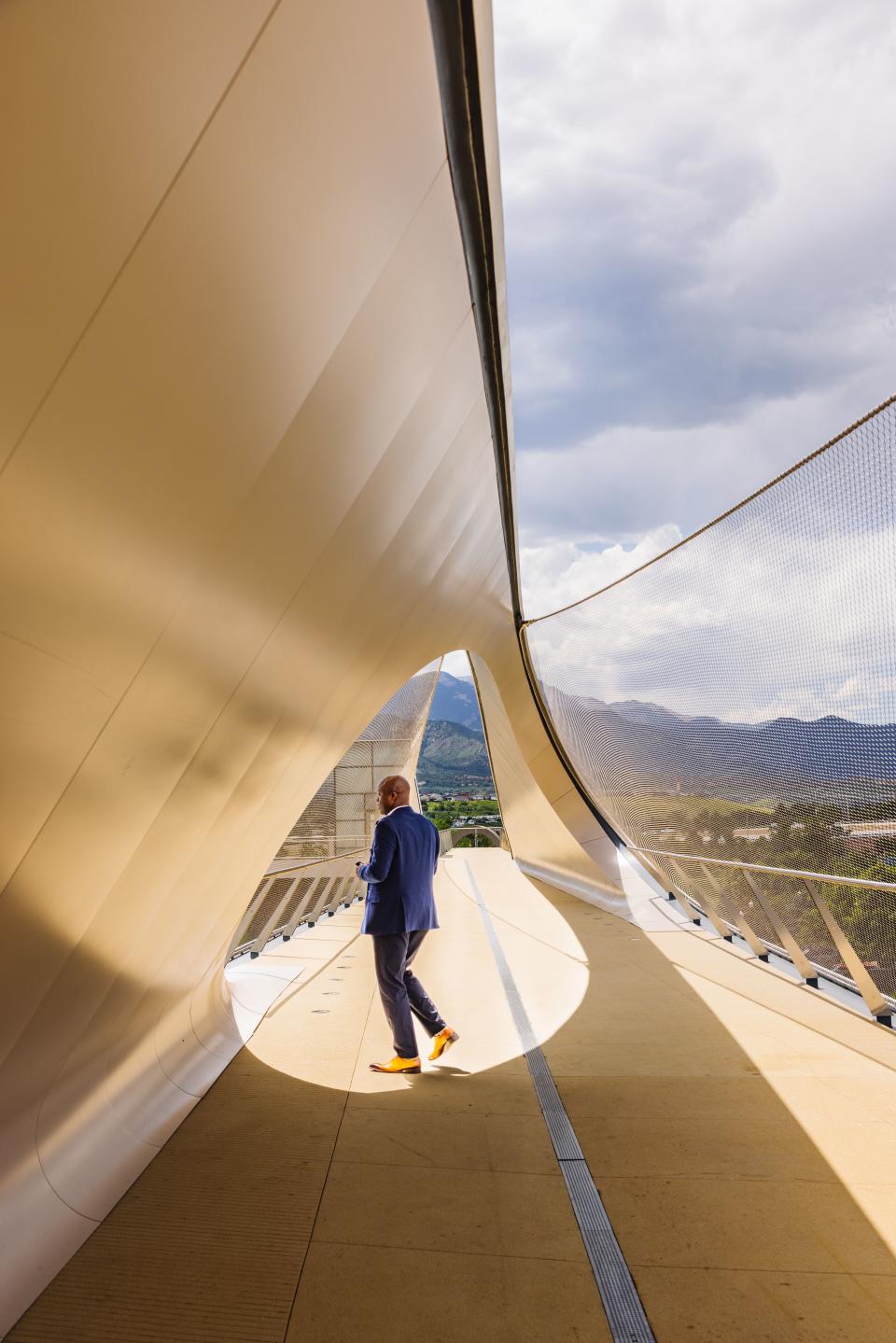The disruptor

- Oops!Something went wrong.Please try again later.
- Oops!Something went wrong.Please try again later.
Since Colorado Springs began electing mayors in 1979, it had never not elected a Republican. The city is historically conservative and proud of it. Over 53 % of El Paso County residents voted for Donald Trump in 2020. But Mayor Yemi Mobolade, a Nigerian immigrant and local restaurateur, bucked the trend by running as an independent and building a broad coalition. In the midst of national partisan culture wars, his 2023 victory has served as a nationwide shocker. The local newspaper called it a “seismic shift” in local politics. Alayna Alvarez wrote for Axios that his win “ushers in a new era” for a city that has borne some of the largest political movements in the country.
Colorado Springs, nicknamed the “evangelical Vatican,” was the birthplace of the culture wars of the 1980s and ’90s. Voters in what once ranked among the most conservative cities in America electing a Black man running on an aggressively nonpartisan, independent ticket means something. But is this phenomenon something unique to Colorado Springs? Or, based on what history has shown us, could it be something bigger for the nation?
Some forecasters think so. “A lot of people want the partisan temperature to drop,” says Vanderbilt political science professor and nationally renowned political observer John Geer. “I think there is an appetite for it.” Nearly half of all Colorado’s active voters are currently registered as unaffiliated, totaling over 45%, according to the secretary of state. This is a marked increase from 40% just a few years ago. Those numbers are perfectly in step with a Gallup poll counting a record-breaking 49% of Americans identifying as politically independent in March. And on a warm morning in June, Mobolade addresses his constituents with a vision of where he believes those steps are headed.

“Our city reflects the true spirit of the West,” Mobolade says from the stage at the 87th annual Western Street Breakfast in downtown Colorado Springs, dressed in a vest and a black cowboy hat he brought from home. “And as we look to the future, let us cherish the traditions of the past while embracing the opportunities that lie ahead of us. May we commit ourselves to building a city that is inclusive, culturally rich, economically prosperous, safe and vibrant.”
That last line came straight from his inaugural speech, given just two weeks prior, where his main theme was unity. “It is the only way forward; the only way to advance our quality of life; and the only way we get things done,” he said then. He cited Abraham Lincoln, the Rev. Dr. Martin Luther King Jr. and Jesus Christ, who in the Gospel of Matthew told the Pharisees, “Every kingdom divided against itself will be ruined.”
History of conservatism in Colorado Springs
Conservatism in Colorado Springs has had many branches over the decades, and its roots aren’t easy to dig up. Matt Mayberry, the director of the Colorado Springs Pioneers Museum, points to the city’s founding — with significant development funded by Spencer Penrose, a devout Republican and the Colorado president of the American Liberty League. But perhaps more notably, the arrival of the military in the 1940s and the 1956 establishment of Robert LeFevre’s education project, The Freedom School (which called the future Republican megadonors Charles and David Koch students) set the tone.
“We’ve been able to prove that we can transcend political leadership and can transcend party boundaries. I know there’s a hunger and appetite for this around the country.”
The Freedom School was “a sort of capitalist boot camp to explore the true meaning of liberty,” writes University of Colorado-Colorado Springs geography professor John Harner. To a certain degree, it became a magnet for what political scientists Christopher Ellis and James Stimson called “symbolic conservatism.” Harner writes that symbolic conservatism “is much more than — and fundamentally different from — culturally conservative politics as defined by the religious right. It is respect for basic values: hard work, striving, caution, prudence, family, tradition, God, citizenship, and the American flag. And the ranks of Americans who cherish these values is no fringe activist minority; it is the mainstream of American culture. It is also not explicitly political except in the sense that strategic political elites have tried to make it so.”
Those values, plus an economic crash in the town, opened the door to the business of evangelical ministries. Between 1980 and 1995, more than 60 evangelical Christian ministries moved their headquarters to the city, including the notable move-in of Focus on the Family, an organization that promotes traditional evangelical views of marriage and sexuality.
Related
Soon after these ministries arrived in Colorado Springs, the city’s national identity became political. Colorado for Family Values, one of the many evangelical organizations, proposed and campaigned for Amendment 2, an amendment to the Colorado constitution that would eliminate gay rights laws in the state and prevent the passage of new ones in defense of religious freedom. When Colorado voters approved Amendment 2 in November 1992 — stripping Coloradoans of gay, lesbian and bisexual orientation of claims to discrimination and minority status — legal historian William Eskridge wrote that “the country had seen nothing this broadly exclusionary since the slavery era.” James Dobson, founder of Focus on the Family, called the city the “Gettysburg in the civil war of values.” The New York Times, The Wall Street Journal, Time and Newsweek all published profiles of the city, while PBS featured an hourlong special titled “The New Holy War,” documenting the now-politically-charged evangelical movement in Colorado Springs.
Although the movement was undoubtedly effective and intense, it was somewhat short-lived. Amendment 2 was overturned in the courts in 1996, and bankruptcy and scandal in the years to come foiled many of the ministries that called Colorado Springs home.
While the presence of evangelical ministries became less palpable, the conservative culture of Colorado Springs remained intact. In fact, Schultz writes that the city “is probably more conservative now than in the 1990s. In the 2016 presidential election, as Colorado voted for Hillary Clinton over Donald Trump by a five-point margin, El Paso County (home of Colorado Springs) voted for Trump by a 20-point margin.”
Mobolade campaigned during a time when many voters on the left and right are exhausted by polarizing debates, especially around identity politics. He believes his victory in Colorado Springs could be a bellwether for other purple states, maybe even the nation.
“We’ve been able to prove that we can transcend political leadership and can transcend party boundaries,” he says. “And I’m not the only one. I know there’s a hunger and appetite for this around the country.”
The Vanderbilt Unity Index, which measures the country’s political unity, actually showed a slight uptick in the first quarter of 2023, driven by a decrease in “extremely conservative” and “extremely liberal” survey respondents. Moderate Democrats generally performed well against very right-wing Republicans in the 2022 midterm elections, and MAGA-despised Republican Brian Kemp beat Stacey Abrams in the Georgia governor’s race. A desire for more middle ground is also reflected in the emergence of third-party movements, like Andrew Yang’s Forward Party and the Joe Lieberman-founded group No Labels. So, as Mobolade says, there does seem to be a growing appetite for turning down the partisan volume.
How Yemi Mobolade came to Colorado Springs
Sitting in a café after his Street Breakfast speech, I ask Mobolade, 44, why he’s right for this moment — why he feels that, in an era of intense polarization, his nonpartisan approach offers a way forward.
His answer goes back to his 1980s childhood in Lagos, Nigeria, where he lived until he was 17. Among his three siblings, he always felt like the one who didn’t fit in. “I was a misfit,” he says. “In a culture where you did things as you were told, and your life was pretty much set and designed for you, I pushed against it.” He always asked questions, always wanted to know why — much to the consternation of his father. His siblings called him “the adopted one.”

Growing up in a devoutly evangelical family, he thought his vocational calling pointed toward ministry, but in his late 20s he experienced a faith crisis spurred by a bad leader. “It was abuse,” he says. He’d discovered the pastor of his church taking advantage of his power. He stopped attending and says “I almost lost my faith” — but, over time, he came to realize that it wasn’t Christianity he had a problem with; it was the abuses and exclusionary practices promulgated by some of his church’s leaders. That’s what led him to Colorado Springs in 2010. As a member of the Christian and Missionary Alliance, an evangelical protestant denomination that was headquartered in the area at the time, he attended a conference and “fell in love” with the city. He decided to move to Colorado Springs and start a church that would explore the question, “How can we transform from a religious experience on a Sunday morning to really transforming hearts and lives, and being a part of doing good in the community?”
A record-breaking 49% of Americans identify as politically independent, according to a Gallup poll in March.
His church didn’t take off as he had hoped. So, he joined the First Presbyterian Church congregation, started two restaurants and took a job working for the Colorado Springs Chamber of Commerce. He became the city’s small business development administrator in 2019 before deciding to run for mayor.
During his campaign, he didn’t sound like any mainstream Republican or Democrat. He talks, often, about his support for police, entrepreneurship and Christianity, but he also regularly touts the importance of diversity and inclusion; both of the restaurants he founded, Good Neighbors Meeting House and Wild Goose, display a progress pride flag in the window.
His Republican opponent seized on those latter tendencies to tar him as too liberal for Colorado Springs. In an ad campaign that labeled him “liberal Yemi Mobolade,” his opponent Wayne Williams accused Mobolade of supporting a vague policy that “sounds exactly like socialism” and urged voters to “protect your city, vote conservative Republican.” Mobolade responded by calling Williams’ posturing “desperation” — and that was about as negative as his campaign ever got.
Some political experts are hopeful that Mobolade’s win will mark the beginning of a national shift. “Mayor Mobolade might be just what the doctor ordered,” says Sara Hagedorn, a political science professor at the University of Colorado-Colorado Springs. Maybe, a few years from now, it’ll become common to see a nonpartisan candidate win a local election. Or a regional one. Perhaps even a national one.
This story appears in the September issue of Deseret Magazine. Learn more about how to subscribe.
